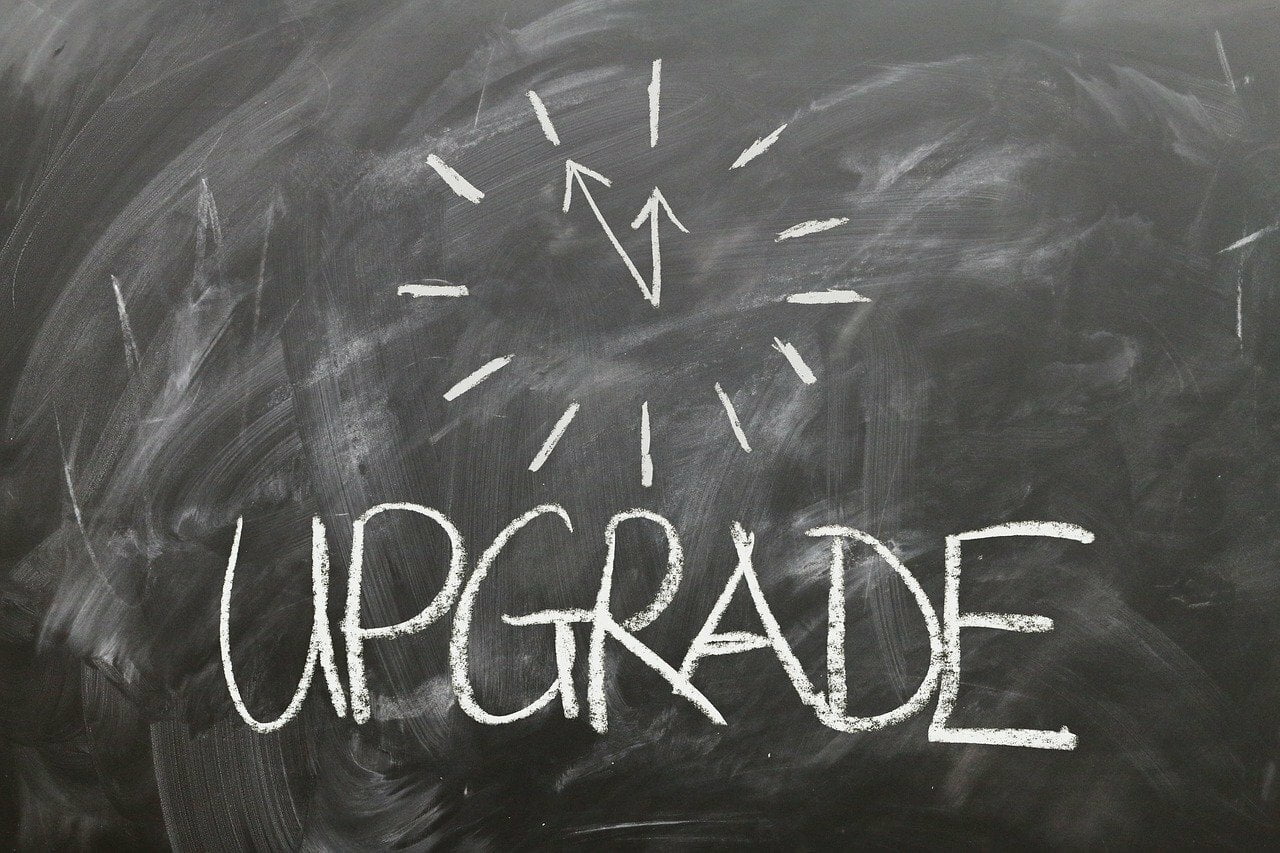
February 27,2024
Upgrade Magento to the latest version: Best practices
When it comes to ecommerce, Magento is one of the top platforms for a range of businesses who want an ecommerce store. Yet, amidst the ongoing demands of running an online store, the question often arises:
Why should I invest time, money and resources to upgrade my site when it seems to be working fine?
This is a question we have come across when advising that your Magento CMS needs to be kept up to date. Outside optimising your website’s performance and enhancing customer experience it is also crucial for maintaining security, which is all very understandable.
The hesitation starts to come in when finding out that this doesn’t mean it’s a quick and easy process, quite the opposite. In fact there are a range of factors to consider when it comes to upgrading, such as what the new update will bring, the current website set up and how the upgrade may affect it.
This article delves into the positive effects that keeping Magento upgraded can have on your website, along with the best practices for ensuring a smooth upgrade.
Importance of Magento upgrades
A question we get asked a lot is, why do I need to upgrade? Maybe your Magento platform has all of the features and functionality that you need from it, so what is the point in upgrading?
Upgrading your Magento platform, like any software, is crucial for several reasons:
Security:
One of the most important reasons to keep your Magento platform upgraded is to ensure that your business remains secure. With each new upgrade there’s a range of security patches that will address known vulnerabilities and protect your site from potential threats such as hacking.
Performance:
Magento upgrades will usually include performance updates. This means, any bug fixes, general speed fixes, downtime fixes and more. Staying up to date with upgrades can improve the overall performance of your website, ensuring that it runs more smoothly to improve your overall customer experience.
Compatibility:
Older versions of Magento can often become incompatible with newer web browsers, server software and third-party extensions. Keeping your site updated ensures that your website will remain compatible within these different areas.
Mitigate risk
Ultimately, an upgraded site is a secure one. And, in order to mitigate risk for both your website and customer data it is absolutely crucial that you keep your Magento website up to date. The Magento support teams release a new upgrade every second month to keep the software updated. With this in mind you should speak with your development team and ensure that your website is kept up to date.
What to keep in mind when upgrading
When upgrading Magento, it is crucial to keep a few considerations in mind. Upgrading is a very technical process that requires in-depth knowledge and understanding of the platform. Due to this complexity, you should without a doubt upgrade through a dedicated development team.
Here’s why
Upgrading Magento involves intricate technical procedures, including modifying code, updating databases and more. Without the proper expertise, upgrading your site will be a minefield of technical processes that only an experienced developer will understand.
In order to avoid any data loss, functionality breaks or even security problems, a dedicated team is the best way to ensure that your website is upgraded efficiently with minimal risk.
How long, and how much will an upgrade cost?
One discussion saw a user discussing whether £4,000 was correct for a 35 hour update. Both this time and cost seem accurate, in regards to the amount of work that comes with upgrading. In fact, 35 hours for a Magento upgrade may even be considered below the average estimate of time needed.
These can be difficult figures to estimate as they will completely vary depending on a variety of factors such as:
What type of upgrade is it?
The type of upgrade will play a large role in determining the time and cost involved. A minor upgrade will typically require less time and effort compared to a more major upgrade, for example, upgrading from Magento 1 to Magento 2. Major version upgrades often involve more extensive changes to codebase, database structure, and functionalities, which can increase the complexity and duration of the upgrade.
How up to date is your website?
The current version of your Magento website impacts the complexity of the upgrade. If your website is running on an outdated version of Magento, especially if it has reached end-of-life status, the upgrade process may require additional steps to ensure compatibility with the latest version of Magento.
Do you have plugins?
Any third-party plugins or extensions on your Magento website can significantly impact the upgrade process. Each plugin or extension needs to be evaluated for compatibility with the new version of Magento. If any plugins are not compatible or require updates, additional time and resources will be needed to address this.
How was the site built?
Websites built using best practices, modular code, and adherence to Magento development standards may require less effort to upgrade compared to websites with custom-built or heavily customised code. Websites with well-documented codebases, and minimal technical requirements are generally easier to upgrade, resulting in shorter turnaround times and lower cost.
Best practices for upgrading your Magento Website
Find a good development agency
With all things Magento, a good development agency is key. And, it is a process that should involve research and evaluation to ensure that they’re the right agency for your needs.
We recommend that you look for agencies with extensive experience and expertise in Magento development. You should ask to see examples of previous and current projects, and scout out how much work was required for the upgrades. As such, ensure that the agency you choose has a range of client reviews and feedback, paying attention to any recurring themes or patterns in their reviews (both positive and negative). This will help you get an understanding of both their strengths and weaknesses.
Consider their availability and resources. If an agency you are considering says they can help you, consider asking for a time and a cost estimate, but keep in mind that these estimates will not be so definitive without the developer having reviewed the websites set up, coe base and more. So remember that the times you get will be an estimate. Specifically, those who are less versed in Magento, be sure to ask them for the steps of the project, ensuring that you understand what is happening, why it’s happening and how long it’ll take.
Don’t hesitate to schedule initial consultations or meetings with prospective agencies to discuss your project requirements, ask questions, and assess their suitability for your needs.
Hold out on brand new upgrades
We’ve mentioned the significance upgrading can have on your Magento store’s security and while we recommend you upgrade your Magento website regularly, something to keep in mind is that it’s worth holding out a bit on the latest updates.
This is because they will generally be slightly less secure than they should be. For example, bugs and smaller issues that haven’t been ironed out are often found on the latest upgrades. This is worth discussing with your development team, as they should be able to tell you whether or not an upgrade is worth doing now or worth holding out on a little bit.
Essentially if an upgrade is at the expense of potential bugs, it’s worth waiting a little bit to make sure that when you upgrade the process will have minimal risks.
Features and functionality
Before upgrading your website, you should ensure that you are aware of the features and functionality that come with the upgrade. With each Magento upgrade new features and functionalities are introduced to enhance the platform’s capabilities and user experience. Rather than upgrading, simply for the sake of upgrading, make sure that you take advantage of what’s available to you.
These features might include improvements to checkouts or new payment gateways you can add to your website. Staying informed on these functionalities ensures that you are getting the most out of your upgrade, as well as the priority of it. A new upgrade may offer a functionality that is crucial for your business, at which point urging this with your development team is important.
Furthermore, these features will often aim to improve website speed, website reliability and scalability. Adopting these features will ensure that your online store is as functional as possible, further improving your users experience.
Upgrade strategy
Before upgrading your website, make sure that you have an upgrade strategy in place with your developers. This is crucial for a smoother and successful transition.
You developers can assess your current Magento setup, including the version you’re on, any customisations or extensions you’ve implemented and more. Based on this they should be able to determine the most suitable upgrade path to create a detailed upgrade plan.
During this strategy, ask your developers to identify any potential risks, conflicts or issues that may arise during the process so that strategies can be put in place to deal with these.
Naturally, you won’t be able to predict all the issues that may arise with upgrading, but by having strategies and being aware of any risks, you will better understand situations like, time going over, costs increasing and more.
Collaborating closely with your developers to upgrade your Magento site is essential for success. It enables you to leverage expertise, understand different processes and ultimately to mitigate any risks.
How to apply updates: Website support or ad hoc updates?
Before upgrading your website, you may need to consider whether it’s best to opt for website support services or rely on ad hoc updates.
So what’s the difference between the two?
Website support:
- Magento support will typically involve partnering with a dedicated support provider or agency that will offer ongoing maintenance and support.
- Website support will often include service level agreement, that guarantees response times, uptime guarantees and priority support for any critical issues.
- Website support services are a recurring contract, which can represent long-term financial commitment for businesses. With this comes a dedicated team that will have worked on and be familiar with your website set up and inner workings.
Ad Hoc Updates:
- Ad hoc work is where you only pay an agency or developer to work on your website, such as when you need the update, i.e. if you need an update in a week, you can pay a developer or development agency as a one off to do the updates.
- With Ad Hoc, businesses have greater flexibility and control over the upgrade process, such as when they are performed, which upgrades are available and more.
- Generally there is more customisation that comes with ad hoc. When it comes to specific requirements and budget constraints as you will only pay for the service you need at the time.
Which is the better choice?
This will depend on your business, budget and more. The main difference to keep in mind is that while support has ongoing cost, they will be more familiar with your website, including any custom code or plug-ins. It is likely that your website support team will be able to plan in when these updates are to be applied. Also, as they will have worked on the site already, it will give them a greater familiarity with your Magento store, resulting in less downtime and quicker turn around on the upgrades..
Ad hoc, on the other hand, is just a one time cost when you need something done. This may seem like the more affordable solution, however, this method comes with its own risks that may incur additional costs. If the developers are not familiar with your website setup this can lead to time estimates taking longer than quoted, unexpected issues can arise and downtime could be longer than anticipated.
Ultimately, the choice is yours, but generally speaking when it comes to Ad hoc, there are a few more steps and processes that you need to take to ensure it’s the one-off development agency or developer is right for you.
On the other hand, with website support comes a familiar team, with a set contract, of which the risks associated are less.
Final thoughts
In conclusion, the decision to invest time and resources in upgrading your Magento platform may seem daunting when your current system appears functional. However, the benefits cannot be overstated. Upgrades are not only crucial for enhancing website performance and elevating customer experience, but they also play a vital role in maintaining security against threats.
Yet, upgrading Magento is far from a simple task. Factors such as the choice between website support and ad hoc updates, consideration of features and functionality, and the development of comprehensive upgrade strategies all come into play.
By collaborating closely with experienced developers and adopting a strategic approach to upgrades, businesses can safeguard their online presence, and enhance user experience in the dynamic world of Magento.




